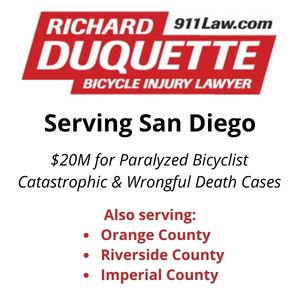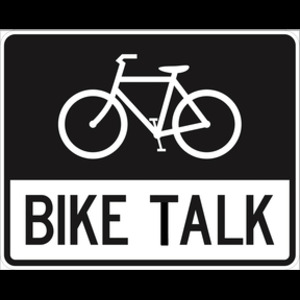Raise my fees. Please.
While I was otherwise occupied, both professionally and subject matter-wise, the topic of online conversation among my fellow L.A. riders turned to the sudden enforcement of the city’s long-dormant bike licensing requirement within certain police precincts.
Damien quickly picked up the story at Streetsblog, and confirmed that yes, it was true. Green LA Girl jumped in with instructions on how and where the deed could be done. Members of the Midnight Ridazz registered en masse, while Josef waxed poetic about registering his Flying Pigeon. And Will went out of his way to register his Giant roadie (I suppose if I had a Giant roadie, I’d want people to know, too.)
Which, I suppose, just leaves me.
I wasn’t shocked to find out L.A. has a bike licensing law. I’d heard rumors about it from time to time, but never could seem to find out any details. Even the cops I asked didn’t have a clue how to go about getting one. Or why anyone would bother, for that matter.
And therein lies the problem.
When the local police — who, under the law, are not only responsible for enforcement but also conducting the actual registration program — are unaware that bikes are supposed to be licensed in this town, something is seriously wrong.
As Damien points out, this is a state program; cities may or may not participate at their discretion. The stated purpose seems to be to aid in the recovery of stolen bikes by registering a description and serial number with the police.
However, the sudden selective enforcement in just some Los Angeles precincts would tend to indicate that the real purpose in bringing it up now is simply to provide the police with another tool for cracking down on unruly riders like the Ridazz.
That’s just one of my many problems with L.A.’s bike licensing program. Like the fact it’s almost impossible to comply with, for instance.
As things currently stand, there are only two places in this city of nearly 4 million people where one can actually get a license — on the campus of USC, and downtown’s Central Community Police Station, which offers the added attraction of riding your bike through skid row just to get there.
Then there’s the fact that the Central Community Station only offers licenses on Tuesdays and Thursdays, between the hours of 10 am and 8 pm. And just to make things a little harder, you have to bring the bike with you.
Seems to me the unreasonable difficulty in registration would make a damn good argument if you were ticketed for having an unregistered bike.
However, some people have said that you can register your bike by mail through the City of Santa Monica, even if you don’t live there. That’s the option I’m going to try.
The bigger problem, though, is that this program is, by and large, meaningless. With a fee of $3 — a measly $1 a year — it’s not enough to make any significant contribution to the city or state coffers, even if every cyclist in the state complied. In fact, I doubt it even covers the administrative costs of the program.
Nor is the penalty for non-compliance, which I’m told is a whopping $10, enough to compel anyone to act. And to the best of my knowledge, whatever funds are raised simply go into the general budget, rather than benefiting cycling in any way.
So I have a simple suggestion.
Raise the fee.
A buck a year is just enough to be an annoyance, without being enough to do any good. So raise it to a more significant, yet still affordable, amount. Like $10, for instance. But require that every penny raised be dedicated to funding bicycling projects — and that the money be spent in the city it comes from.
The result would be that every city in California would have anywhere from a few thousand to a few million dollars to spend on improvements that would benefit local cyclists. And that couldn’t be spent on anything else.
But it could be spent on new bike lanes, or bike lockers, or repaving crumbling bike paths, or even red light triggers — without raising taxes or draining empty city coffers. And instead of wasting our money on a mere annoyance, we’d see the actual results of our fees on the streets of our own cities, which would do a lot more to encourage compliance than any penalty would.
It could also be run through the DMV, like registering any other vehicle — they might be a pain in the ass to deal with, but at least they know how to handle vehicle registrations, unlike whatever poor cop happens to get stuck with desk duty on Tuesday or Thursday. There’s also a DMV office in virtually every city in the state, often more than one, and they have the infrastructure in place to handle renewals automatically by mail.
Or course, there are other ways to handle it.
Just like with cars, the fees could be based on the value of the bike. There’s a reasonable argument to be made that I should pay more to license my two-grand road bike than someone should pay for a $250 Flying Pigeon. Even a 1% fee would result in a still relatively reasonable $20 per year for my bike, while that Flying Pigeon would only run $2.50, and an $8000 carbon fiber miracle of modern science would cost $80 — not much more than its owner would spend on a decent racing tire.
But whatever method we choose, we need to do something.
Because the current system is simply asinine. And it’s time our money went to something that would do us some good.
Hardrockgrrl survives her first journey through the Block of Death. And after dark, no less. Both Gary and Green LA Girl promote Westwood’s upcoming Bike Town Beta; she also offers 9 steps for bicycle happiness, which I missed the first time around. Damien offers the next step in reclaiming the Ballona Bike Trail with the upcoming Tour de Ballona (nice graphics, too). In news from the home state, Boulder holds the LAB’s platinum rating, which my old hometown aspires to. I believe L.A.’s current rating is rusted pot metal. Bottleneck Blog’s Steve Hyman discovers a bike rack miracle in Pasadena. And finally, Will drops in on the new Heliotrope Road home of Orange 20 Bikes.
Like this:
Like Loading...











